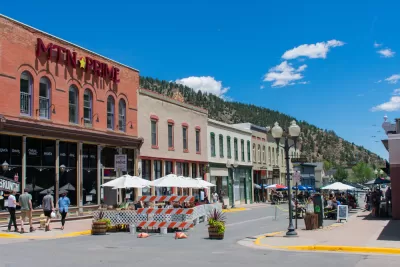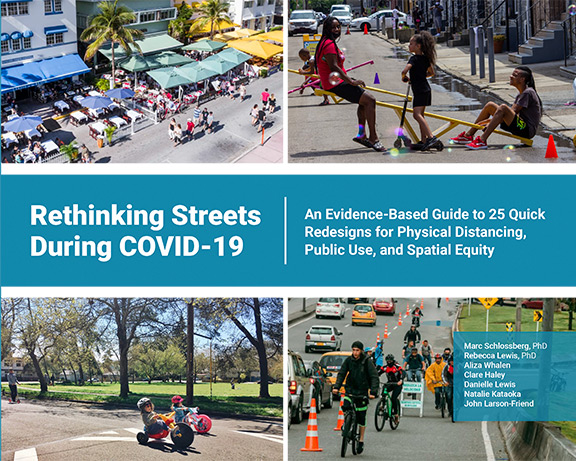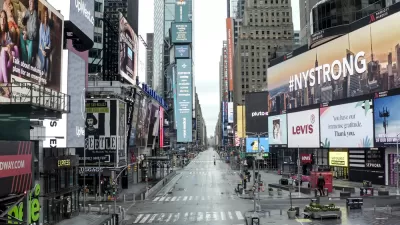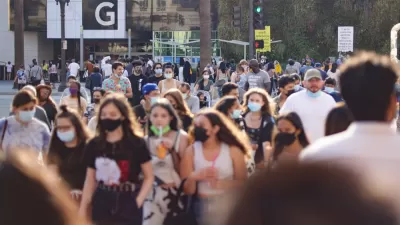A new book from the "Rethinking Streets" series identifies 25 quick redesigns cities can use to reconfigure streets for the realities of the COVID-19 pandemic.

The introduction to the new book Rethinking Streets During COVID-19—authored by Marc Schlossberg, Rebecca Lewis, Aliza Whalen, Clare Haley, Danielle Lewis, Natalie Kataoaka, and John Larson-Friend—reads as follows:
During COVID-19 Re-allocating space on streets to accommodate new uses—particularly for walking, biking, and being—is not new. COVID-era needs have accelerated the process that many communities use to make such street transitions, however. Many communities quickly understood that the street is actually a public place and a public good that serves broader public needs more urgent than the free flow or the storage of private vehicles. This book captures some of these quick changes to city streets in response to societal needs during COVID, with two open questions: 1) what changes will endure post-COVID?; and 2) will communities be more open to street reconfigurations, including quick and inexpensive trials, going forward? We hope you look at the examples in this book and find ones that could work in your community and then use your voice to help implement your own local version of what you see here. Enjoy!

FULL STORY: Rethinking Streets During COVID-19

Maui's Vacation Rental Debate Turns Ugly
Verbal attacks, misinformation campaigns and fistfights plague a high-stakes debate to convert thousands of vacation rentals into long-term housing.

Planetizen Federal Action Tracker
A weekly monitor of how Trump’s orders and actions are impacting planners and planning in America.

Chicago’s Ghost Rails
Just beneath the surface of the modern city lie the remnants of its expansive early 20th-century streetcar system.

Bend, Oregon Zoning Reforms Prioritize Small-Scale Housing
The city altered its zoning code to allow multi-family housing and eliminated parking mandates citywide.

Amtrak Cutting Jobs, Funding to High-Speed Rail
The agency plans to cut 10 percent of its workforce and has confirmed it will not fund new high-speed rail projects.

LA Denies Basic Services to Unhoused Residents
The city has repeatedly failed to respond to requests for trash pickup at encampment sites, and eliminated a program that provided mobile showers and toilets.
Urban Design for Planners 1: Software Tools
This six-course series explores essential urban design concepts using open source software and equips planners with the tools they need to participate fully in the urban design process.
Planning for Universal Design
Learn the tools for implementing Universal Design in planning regulations.
planning NEXT
Appalachian Highlands Housing Partners
Mpact (founded as Rail~Volution)
City of Camden Redevelopment Agency
City of Astoria
City of Portland
City of Laramie





























